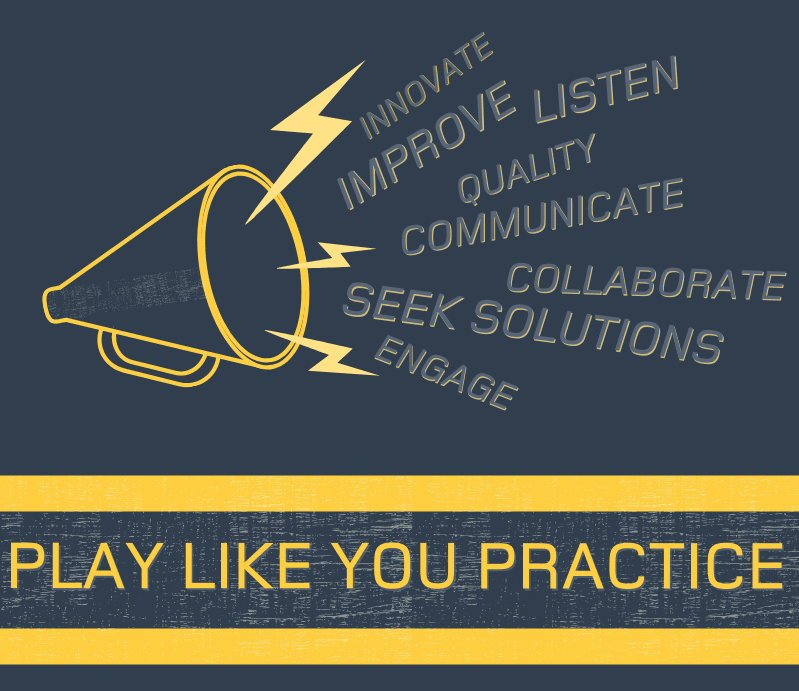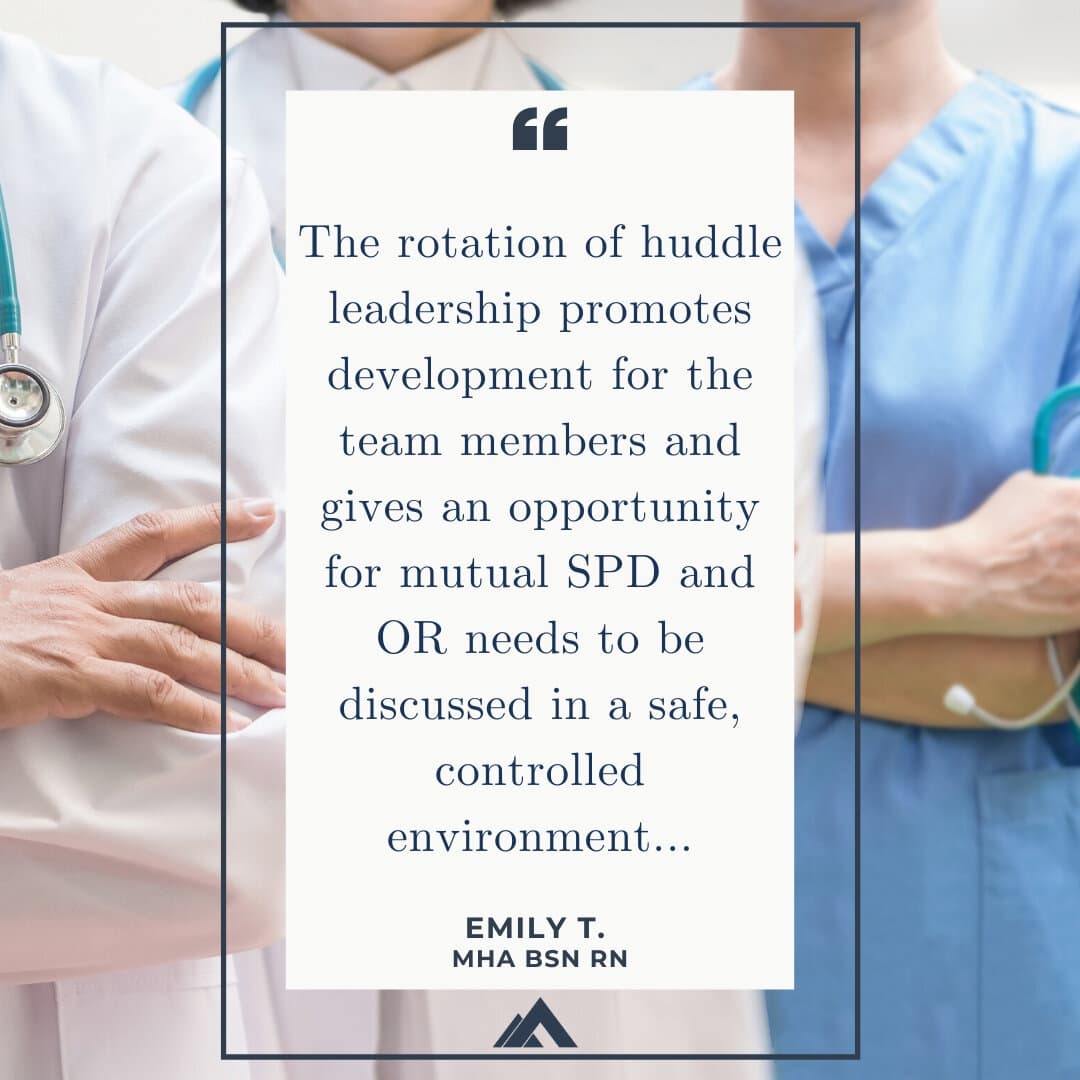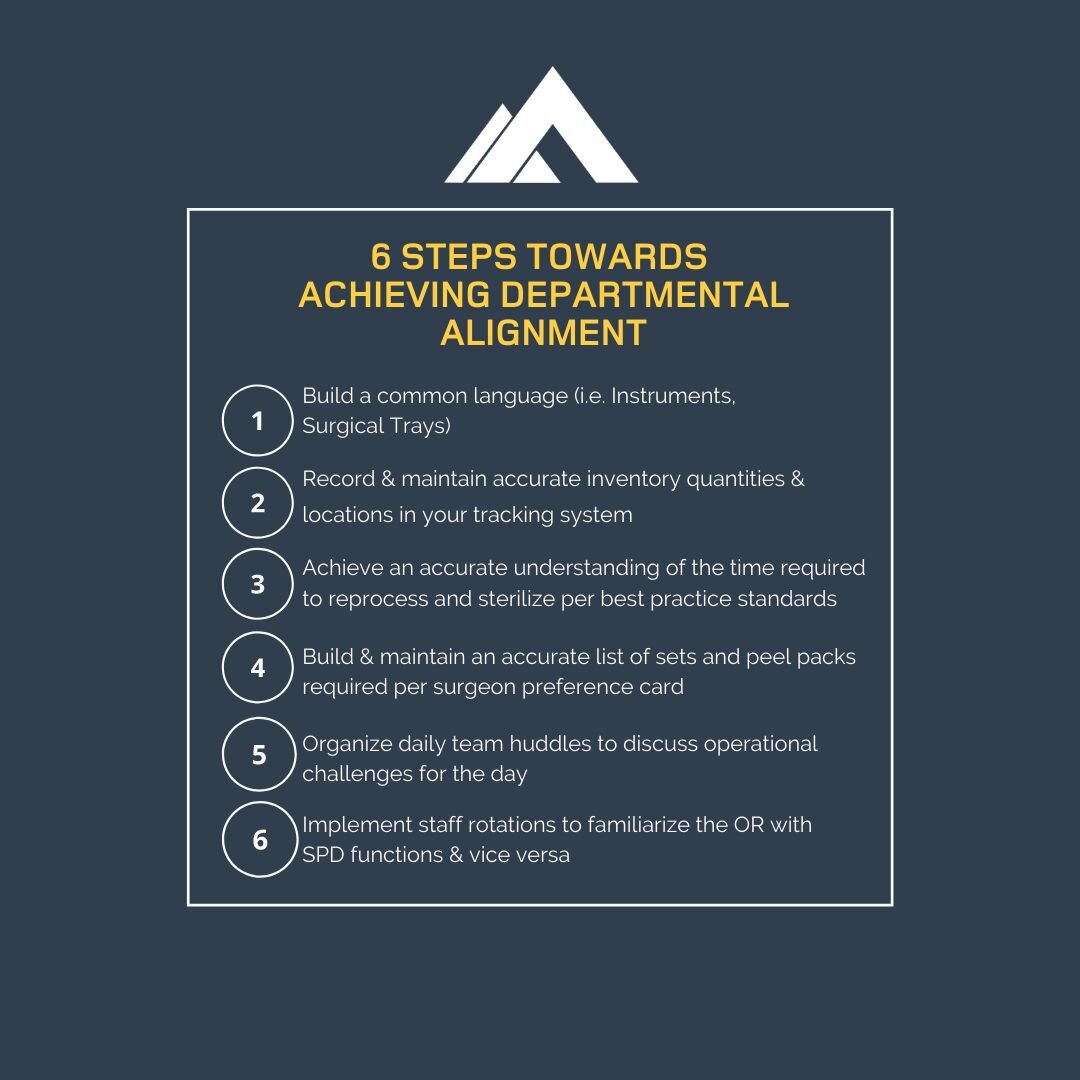
There is a saying: “You play like you practice”.
The point is to focus on what you do leading up to the game, so you play like a champion. The same logic can apply to your interdepartmental relations. Since every day is game day in the world of surgical services, operating like a team and a well-oiled machine is crucial to a successful operation and consistently ensuring patient safety.
Communication and collaboration are key in the fast-paced realm of the perioperative care team. The constant commotion, never-ending stream of information flowing from several sources and systems, and high-consequence nature of the space contribute to an incredibly stressful work environment. It is time to combat the frustrations that come along as a team!
Try these 3 steps to help your departments practice and play like champions:
- Build a common language to describe surgical inventory (i.e. Instruments, Surgical Trays)
- Organize daily team huddles to discuss operational challenges for the day
- Implement staff rotations to familiarize the OR with SPD functions & vice versa
It is no secret that collaboration improves performance, so practice engaging with knowledgeable and passionate coworkers in and around your department to raise the standard of care at your facility. Build relationships and work to create an interdepartmental culture centered around continuous improvement. Whether there is calm or chaos, lean on each other and choose to work together to make a positive impact on patients’ lives.
What do you need to practice better? Tell us how you improving yourself and your team!
For more information about this topic, contact us or click the links below to read more about it!
Engage
“Bringing your OR and SPD teams together for regular huddles might be a great start to improving this process, and hardwiring collaboration in the name of patient safety.”

Align
The ability to pull these clinical languages together and coordinate real teamwork across OR, SPD, and Supply Chain departments is called “alignment.”

Improve
“…Everyone who touches that instrument holds some level of responsibility for its care, handling and functionality.”

